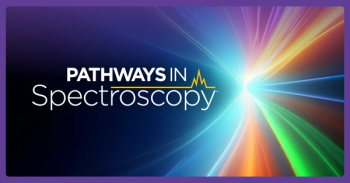
Interpreting Exoplanet Surface Composition
In the final part of our conversation with Leonardos “Leo” Gkouvelis, we discussed what happens when opposition effects are ignored when studying exoplanets and how it impacts our understanding of their surface composition.
In the final part of our conversation with Leonardos “Leo” Gkouvelis, we discussed what happens when opposition effects are ignored when studying exoplanets and how it impacts our understanding of their surface composition. Gkouvelis explored in a recent study published in the Planetary Science Journal (1). In this interview, Gkouvelis discusses the importance of considering the opposition effect when modeling exoplanets, as failure to do so can lead to significant errors in characterizing the planet's material or atmosphere. He highlights that current telescopes' errors prevent distinguishing between atmospheric and bare rock scenarios. To address this, Gkouvelis proposed using the Bayesian framework to sample parameter space and match observations with various models.
Read More:
The Bayesian framework is a statistical approach that updates the probability of a hypothesis as new evidence becomes available, relying on Bayes’ theorem (2). It combines prior knowledge (the prior distribution) with observed data (the likelihood) to produce updated beliefs (the posterior distribution) (2). This framework is widely used in fields such as machine learning (ML), data analysis, and decision-making because it provides a structured way to handle uncertainty.
By studying exoplanets, the Bayesian framework could be used to create different scenarios to match exoplanet observations, which could be handy especially for rocky planets. The observations, scientists noted, can be matched with the modeling to infer the material or atmosphere of the exoplanet under study (1).
Read More:
Gkouvelis also notes in the below video clip that there is a need for better laboratory measurements of optical and photometric properties, particularly for the opposition effect, to improve exoplanet characterization.
This video segment is part three of our interview with Gkouvelis. To stay up to date with all the latest video interviews from Spectroscopy, click
References
- Gkouvelis, L. An Analytical Model of Wavelength-dependent Opposition Surge in Emittance and Reflectance Spectroscopy of Airless Rocky Exoplanets. Planet. Sci. J. 2025, 6 (5), 110. DOI:
10.3847/PSJ/adcba8 - Van de Schoot, R.; Depaoli, S.; King, R.; et al. Bayesian Statistics and Modelling. Nat. Rev. Meth. Primers 2021, 1 (1). DOI:
10.1038/s43586-020-00001-2 - Wetzel, W. Exploring the Opposition Surge Effect When Studying Exoplanets. Spectroscopy. Available at:
https://www.spectroscopyonline.com/view/exploring-the-opposition-surge-effect-when-studying-exoplanets (accessed 2025-09-17). - Wetzel, W. Exploring the Key Drivers of the Opposition Surge Effect in Astronomy. Spectroscopy. Available at:
https://www.spectroscopyonline.com/view/exploring-the-key-drivers-of-the-opposition-surge-effect-in-astronomy (accessed 2025-09-17).
Newsletter
Get essential updates on the latest spectroscopy technologies, regulatory standards, and best practices—subscribe today to Spectroscopy.




